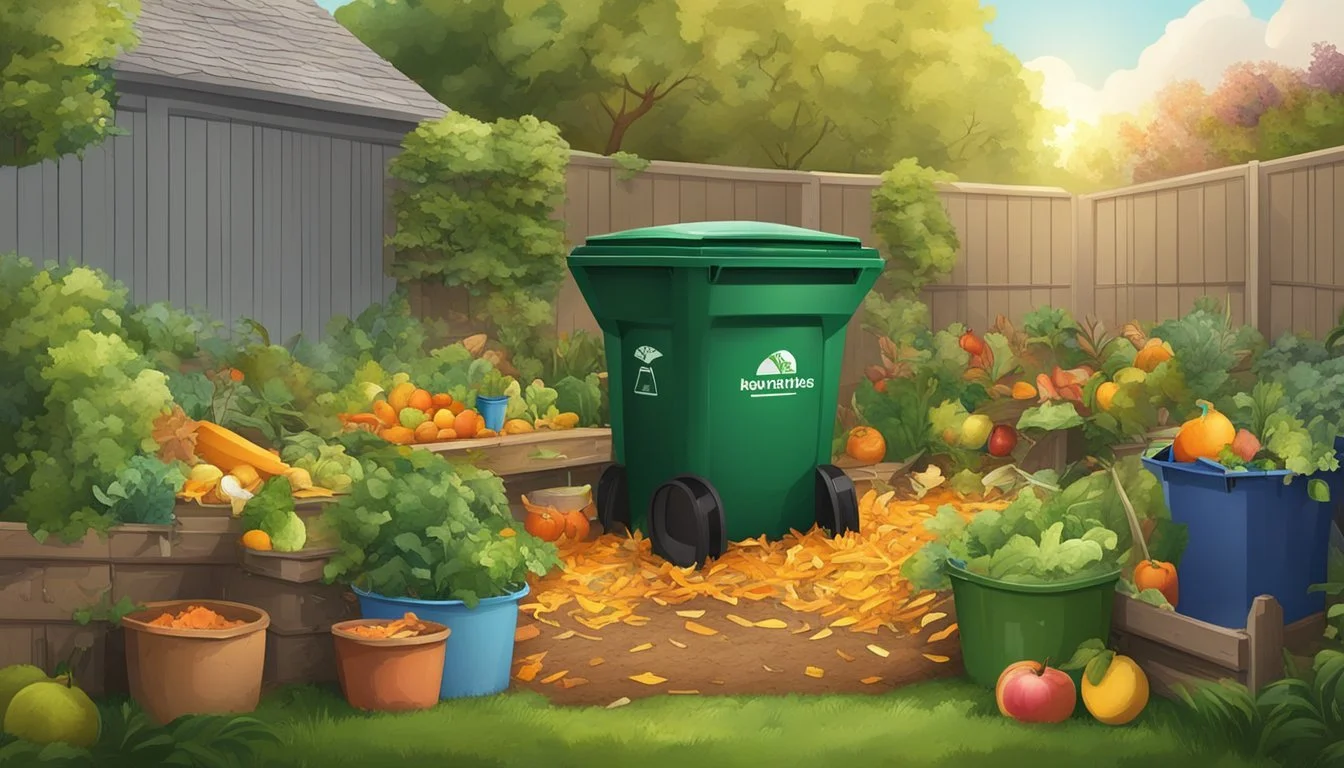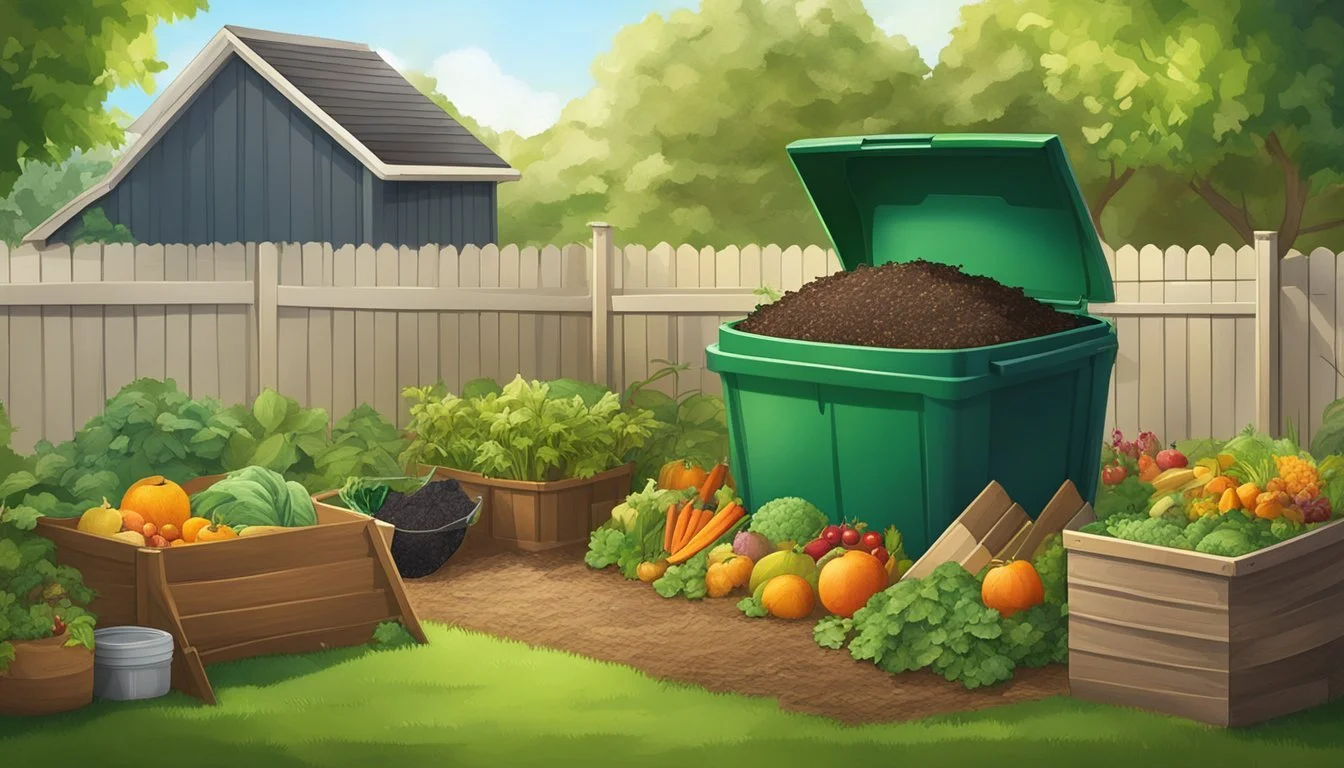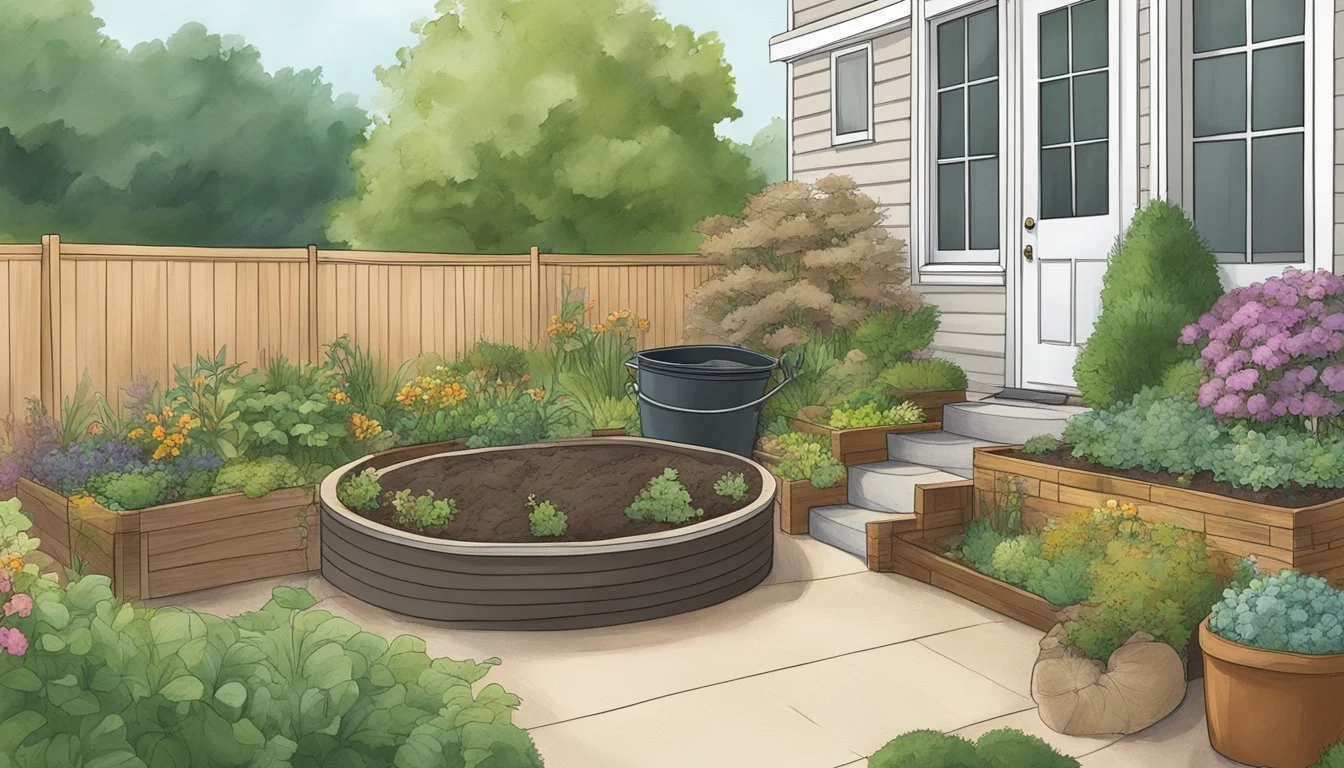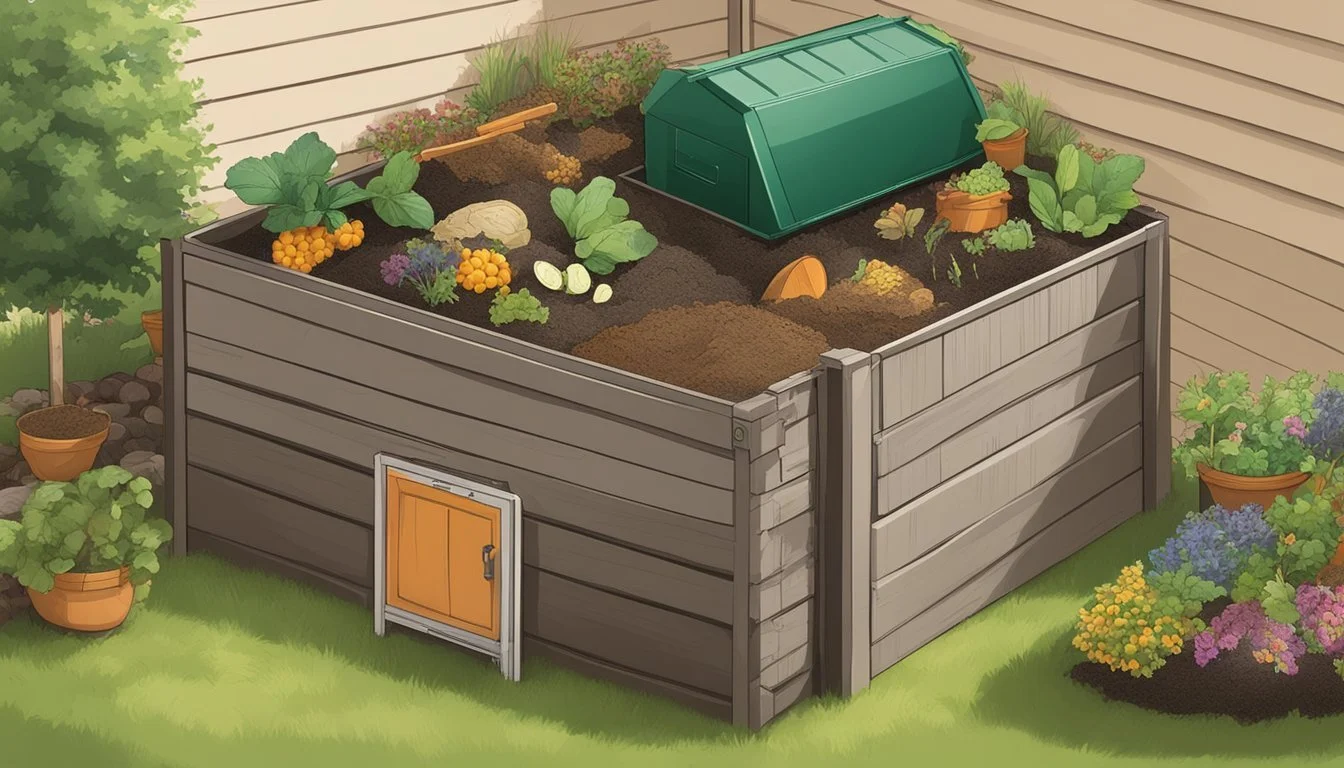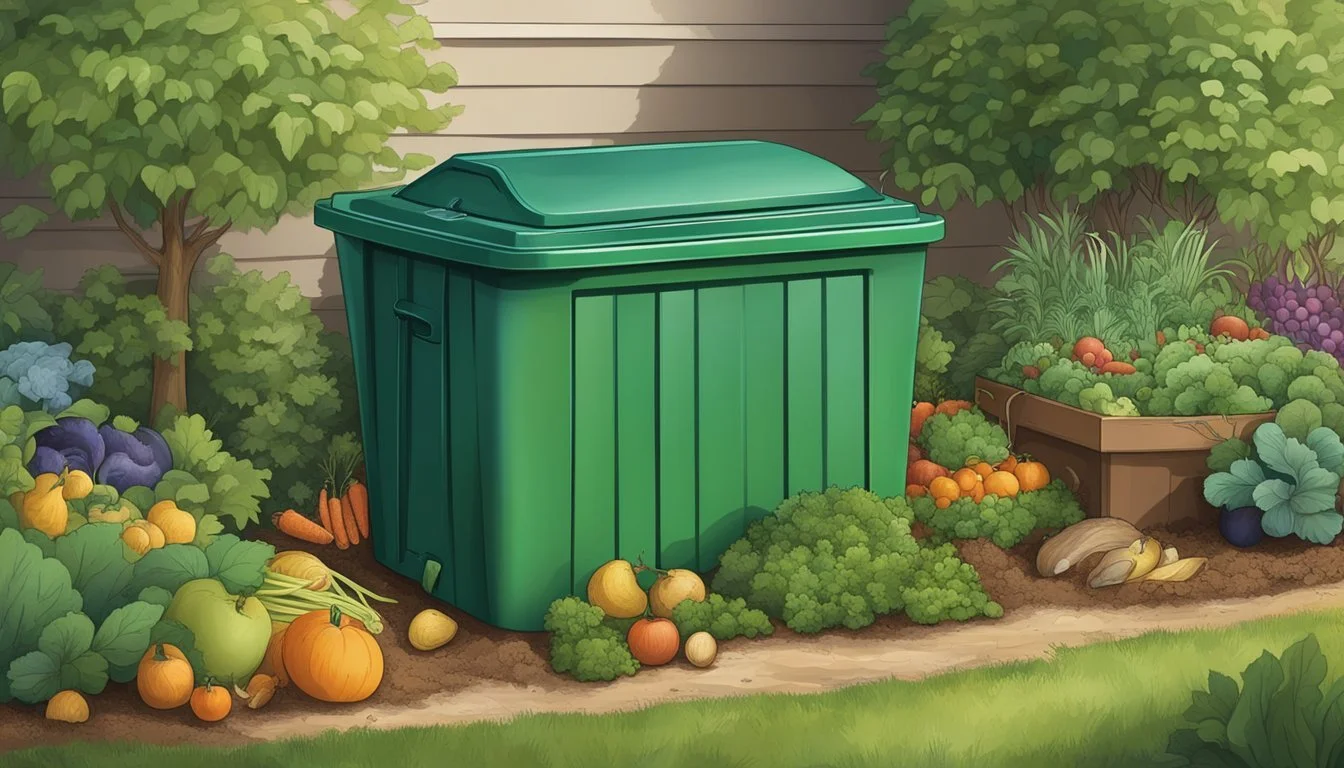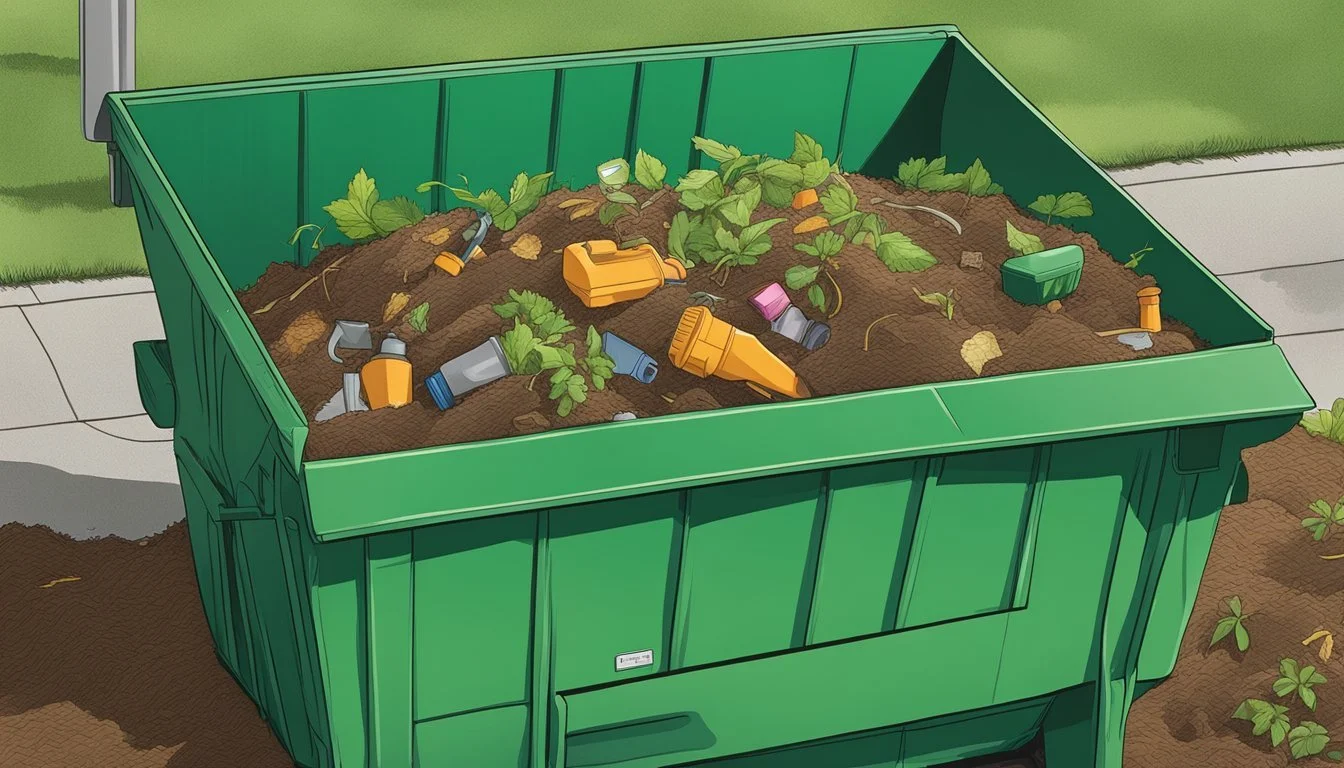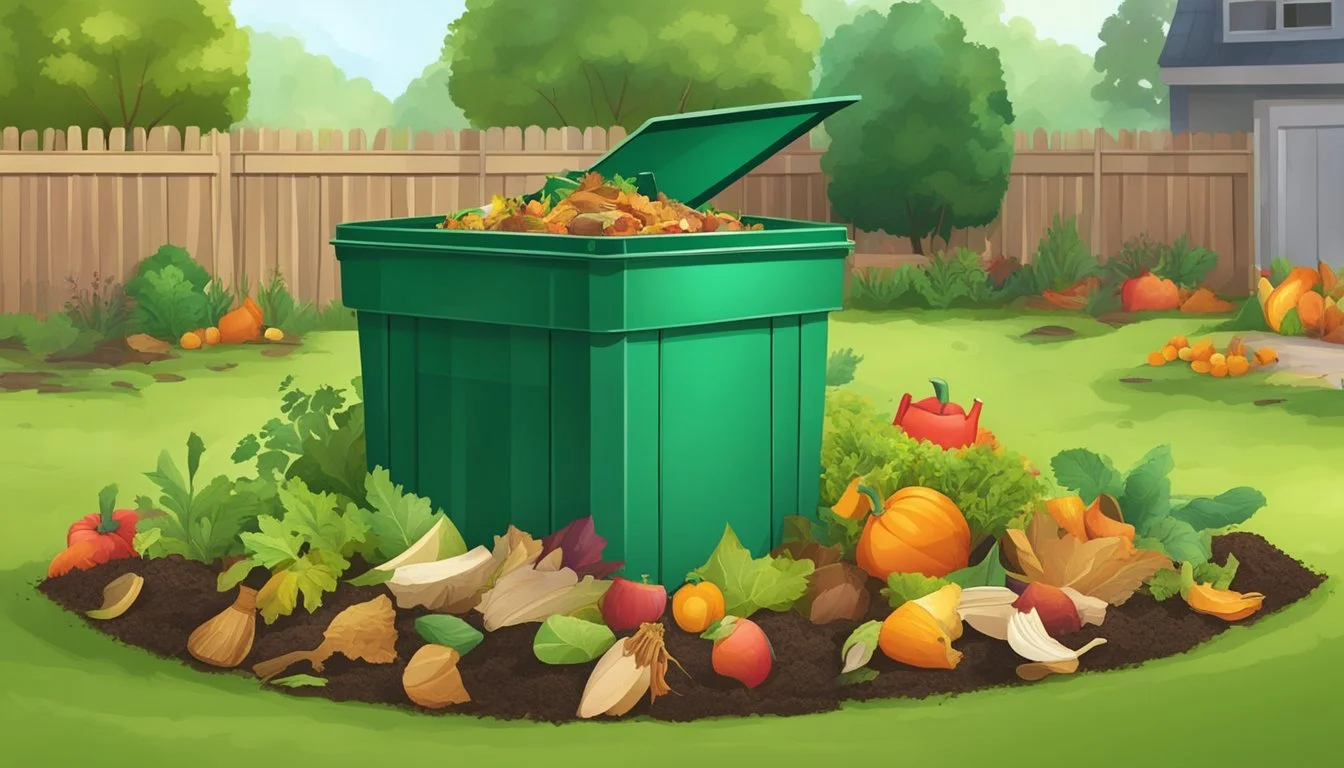Guide to Composting in High Point, NC
Essential Tips for Local Residents
Composting in High Point, NC, plays a significant role in the city's waste management and sustainability efforts. Residents have the opportunity to contribute to a greener environment by learning about and engaging in composting practices. Composting is the process of recycling organic material like food scraps and yard waste into a rich soil amendment. The resulting compost is beneficial for plant growth, enhancing soil structure, and reducing the need to apply chemical fertilizers.
The City of High Point supports these environmentally friendly practices through facilities such as the Ingleside Compost Facility, which offers services for the disposal of yard debris and the purchase of compost and mulch. This support demonstrates High Point's commitment to reducing landfill waste and promoting the natural cycle of organic matter.
For residents interested in starting their own composting at home, there are resources available that explain how to recycle various organic household and yard materials effectively. Composting at home can divert more than 25% of a typical household's waste from landfills. By managing organic waste responsibly, High Point residents can contribute to a healthier community and ecosystem.
Composting Basics
In High Point, NC, mastering composting basics can transform organic material into valuable soil amendments for gardens and landscapes.
What Is Composting?
Composting is the controlled biological decomposition of organic matter such as leaves, grass clippings, and kitchen scraps. When performed correctly, it is an aerobic process that involves microorganisms such as bacteria and fungi, which break down the material into a nutrient-rich substance known as compost.
Benefits of Composting
Composting offers several advantages for the environment and garden health. It is a natural process that reduces landfill waste by repurposing yard waste and kitchen scraps. The end product improves soil structure, increases water retention, and provides essential nutrients to plants. By composting, one contributes to a sustainable cycle that enriches the soil without relying on chemical fertilizers.
Setting Up Your Compost System
Successful composting starts with setting up an effective compost system that caters to yard waste management and provides enriching soil additives for landscaping needs.
Choosing a Location
The perfect spot for a compost system is a dry, shady area with convenient access to water. It's essential that the location is close enough to your garden to make depositing kitchen scraps and yard waste effortless while also ensuring it's not so close to neighbors that it may cause a disturbance.
Compost Bins and Piles
Compost can be processed in either bins or piles. A compost bin is usually more structured, sometimes enclosed, and can be an aesthetic addition to a backyard, suitable for smaller spaces. Open piles, on the other hand, work well for larger gardens but require more space and maintenance. High Point residents have the option to purchase materials like mulch and compost from Ingleside Compost Facility.
Tools and Equipment
When beginning a compost system, certain tools are beneficial:
Pitchfork or shovel: To turn and aerate the compost.
Garden hose with a spray head: For maintaining moisture.
Bin or pile enclosure: Can be built or purchased to contain the compost.
Wheelbarrow or garden cart: Helps in moving compost materials to different parts of the garden.
For those interested in backyard composting, NC State Extension provides ample guidance, highlighting composting principles suitable for the climate and region.
What to Compost
In High Point, NC, residents can turn organic waste into valuable compost by balancing greens, which add nitrogen, with browns, which add carbon.
Greens and Browns
One should add both greens, such as food scraps and grass clippings, and browns, like dry leaves and branches, to their compost pile. Greens provide nitrogen and browns supply carbon. They should maintain a ratio of about 3 parts browns to 1 part greens by volume for optimal composting.
Greens (Nitrogen-rich materials)
Fruit and vegetable scraps
Grass clippings
Fresh plant material
Browns (Carbon-rich materials)
Dry leaves
Straw and hay
Cardboard and paper
Woody trimmings and sawdust
Items to Avoid
Not all organic material is suitable for composting in High Point. The city recommends that residents avoid composting meat, dairy products, and fish to prevent odors and pest attraction. Composting these items improperly can also lead to pathogens.
Do not add:
Meat or fish scraps
Dairy products
Diseased plants
Pet wastes
Maintaining Your Compost
Proper compost maintenance is essential for creating high-quality compost. It involves careful monitoring and control of aeration, temperature, and moisture, as well as managing the volume of the material added to the pile.
Aeration and Temperature Control
Aeration is crucial for maintaining the aerobic conditions necessary for composting. By turning the compost pile regularly, one introduces oxygen which aids microbial activity. The pile should ideally be turned once a week, or when the center's temperature reaches between 140 to 160 degrees Fahrenheit. Maintaining these temperatures accelerates the decomposition process, killing off weed seeds and pathogens.
Moisture and Volume
The ideal moisture level for a compost pile is similar to the wetness of a wrung-out sponge. If too dry, microbial activity slows, and if too wet, it can lead to anaerobic conditions that produce odors. Checking the moisture level weekly and adding water or dry materials as needed is recommended. The volume of composting materials added to a pile should not exceed 3 feet in height, which allows for proper heat retention and makes turning the pile manageable.
Compost Maturation
Finished compost is typically dark, crumbly, and has an earthy smell. Depending on the materials and conditions, compost can mature in 3 to 12 months. Checking the pile every few weeks for a reduction in volume and a more homogeneous appearance helps one gauge if the compost is maturing properly. Once finished, the compost should be sifted to remove larger particles and then it’s ready for use in the garden.
Using Your Compost
After creating a nutrient-rich compost, it can be utilized to enhance the landscape and support plant health in various ways.
In Your Garden
Compost is most commonly applied in gardens to boost soil structure and fertility. When incorporated into garden beds, compost acts as a soil amendment, improving aeration and water retention. This modification encourages robust plant growth by enabling roots to expand more easily and access the nutrients they require. High Point gardeners might find that adding compost can help to equalize elevation disparities by building up soil in low areas.
As Mulch and Soil Amendment
Alternatively, compost can be used as mulch around plants, trees, and within landscaping projects. A layer of compost spread around plants helps retain soil moisture, suppress weeds, and gradually release nutrients. This mulching effect also shields the soil from extreme temperature variations and reduces erosion, especially on slopes or elevated areas. As a soil amendment, compost enriches the soil, fostering a living ecosystem that is essential for healthy plant life.
Troubleshooting Common Issues
In High Point, NC, composting can face some challenges, specifically related to odors, pests, diseases, and weeds. This section offers targeted solutions to handle these common issues effectively.
Odors and Pests
Odors often signal an imbalance in the compost bin. If a compost pile emits a foul smell, it could be due to an excess of nitrogen-rich materials which should be balanced with more carbon-rich items. Monitoring the carbon-to-nitrogen ratio and ensuring it remains around 25-30:1 can significantly reduce unpleasant smells. To address the issue of pests, such as rodents and flies, one should avoid adding meat, dairy, or cooked food to their compost and maintain a well-covered and turned pile.
Mitigation tips for odors:
Cause Solution Excess nitrogen (greens) Add brown materials like leaves, straw, or shredded paper Poor aeration Turn the pile regularly to improve airflow
Preventative measures for pests:
Pest Type Preventative Measure Rodents Use a bin with a secure lid and a base Flies Bury food scraps deep within the pile
Diseases and Weeds
When composting plant materials affected by diseases or infested with weeds, it's crucial to reach temperatures high enough to kill pathogens and weed seeds. A compost pile should ideally maintain temperatures between 130°F and 150°F. They should also work on turning their compost pile regularly to ensure an even breakdown and killing of any unwanted additions.
Strategies to prevent disease and weed spread:
Achieve higher temperatures by balancing green and brown materials and maintaining adequate moisture.
Avoid composting diseased plants or weeds that are seeding to prevent contamination.
By following these methods, composters can ensure their compost remains a healthy addition to their garden without attracting pests, emitting bad smells, or inadvertently spreading plant diseases and weeds.
Composting in High Point, NC
Composting in High Point, NC, centers on the services provided by the city, facilities like Ingleside, and educational support from institutions such as NC State Extension. High Point residents can effectively manage residential yard waste and contribute to environmental sustainability by engaging with these opportunities.
City Regulations and Services
The City of High Point enforces specific regulations to ensure that composting efforts align with environmental and community standards. Residents are encouraged to participate in composting residential yard waste in an eco-friendly manner. The city provides guidelines on how to compost at home and what materials are suitable for the process.
Ingleside Compost Facility
Ingleside Compost Facility serves as a central component of High Point's commitment to green waste management. It offers High Point residents the chance to dispose of yard debris and acquire composting materials like mulch and soil amendments. This facility emphasizes the importance of repurposing organic waste into useful products, further supporting the city's sustainability goals.
Location: 3001 Ingleside Drive, High Point, NC 27261
Services:
Yard debris disposal
Mulch and compost sales
Local Workshops and Resources
The city collaborates with entities like NC State Extension to offer workshops and resources for residents interested in composting. These educational programs aim to broaden the community's knowledge on effective composting techniques, helping to reduce landfill waste and foster a greener High Point.
Offerings:
Educational workshops
Composting guides and tutorials
By participating in these programs, residents can enhance their understanding of sustainable waste management and contribute to a healthier environment.
Environmental Impact and Sustainability
Composting in High Point, NC, serves two crucial environmental goals: reducing landfill waste and improving soil health, which, in turn, mitigates erosion. These practices are integral to the city's comprehensive approach to environmental sustainability, ensuring the well-being of the local ecosystem and its residents.
Reducing Landfill Waste
By diverting organic matter from landfills, High Point's composting initiatives help to decrease the overall volume of disposal. Landfills are a major contributor to greenhouse gas emissions, particularly methane, which is significantly more potent than CO2. Composting organic materials such as food scraps and yard waste reduces the stress on landfill sites and cuts down the emissions associated with decomposing waste.
Improving Soil Health and Reducing Erosion
Soil health is enhanced through the addition of compost, which contributes essential nutrients and improves soil structure. The use of compost can lead to better water retention and increase the presence of beneficial microorganisms. This practice not only enriches the soil but also makes it more resilient against erosion. When applied to the land, compost acts as a protective layer, reducing the rate at which soil is worn away by water and wind, thereby safeguarding local habitats and water quality.
Advanced Composting Techniques
For those looking to expand their composting practices in High Point, NC, advanced techniques can provide effective solutions for large-scale operations and introduce innovative methods that enhance soil and landscaping outcomes.
Composting for Large-Scale Operations
Large-scale composting requires a systematic approach that is efficient and environmentally responsible. Operations typically involve engineered soil systems designed to manage vast amounts of organic waste. These systems can incorporate aerated static pile composting, which utilizes a network of pipes to introduce air into the compost piles, improving the process's efficiency. Additionally, windrow composting is common for large-scale operations, where organic waste is placed in long rows and periodically turned to maintain optimum conditions.
Innovative Composting Methods
Innovation in composting often leads to methods that are not only efficient but also environmentally conscious. One novel concept is vermicomposting, which introduces certain types of worms to help break down organic material at a quicker rate. Another approach is the integration of in-vessel composting technology, which can decompose organic matter within enclosed reactors, providing faster decomposition rates and better control of environmental factors. These methods significantly contribute to the creation of high-quality compost used in landscaping and agriculture, while also offering scalable solutions for communities in High Point.

